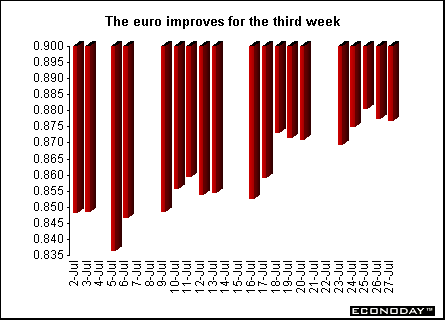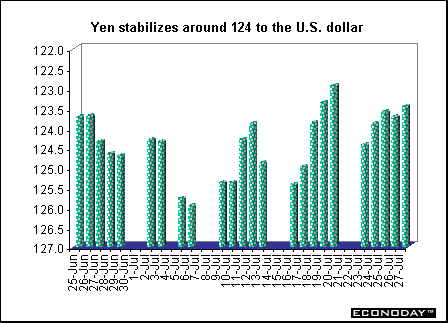
Currencies
The euro continued to maintain last week's levels despite continuing manufacturing and sentiment woes. The euro is higher for two reasons - doubts about the U.S. economy as well as lower EMU inflation, which may lead to more rate cuts. Yet the euro did fall against the dollar and suffered its biggest drop in two weeks against the yen on concern the currency's rise isn't justified by prospects for European economic growth. Surveys also showed that German business confidence fell to the lowest level in almost five years and Italian executives were the most pessimistic in two years. Leading German research institutes halved their 2001 growth estimates for the region's biggest economy.

The euro's decline late in the week pared gains it had made against the dollar. Federal Reserve Chairman Alan Greenspan triggered dollar selling the prior week when he said that U.S. growth isn't likely to recover until year-end, later than some had expected. Expectations that the European Central Bank might move as soon as next month to fuel growth by cutting interest rates were damped when statistics showed faster than expected June money supply growth. A 6.1 percent rise in money supply suggests inflation might accelerate in coming months, and the ECB has cited inflationary risks as a reason for not reducing borrowing costs more.
The yen went virtually nowhere as investors awaited the election outcome. Economic data didn't help the currency as there was no good news. Deflation continued as did the decline in the Japanese trade balance. The latter indicates weak demand along with the need to manufacture more goods in cheaper developing countries to remain competitive. Add this to anemic domestic demand in Asia and elsewhere, and the prospects for a turn around are less than favorable.



Introduction • Global Stock Market Indexes • Recap of Global Markets • Currencies • Indicator Scoreboard

The Bottom Line • Looking Ahead
|